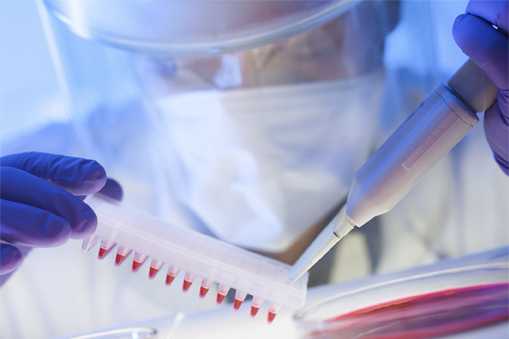Laboratory Testing
Laboratory systems are set up in the United States to quickly confirm or rule out whether a patient has anthrax or whether the environment is contaminated with Bacillus anthracis, the type of bacteria that causes anthrax. These labs are vital to the early identification of anthrax, especially in the case of a bioterrorism attack using anthrax.
However, the labs at CDC are always hard at work, not just during a bioterrorism event. They are working every day to conduct research that enhances the scientific understanding of anthrax. Laboratory scientists at CDC routinely strive to provide accurate information and efficient testing.

Labs at CDC work to:
- Study and describe Bacillus anthracis
- Provide anthrax reference diagnostics
- Create new tests (including assays and diagnostics) to quickly identify anthrax
- Test prevention and treatment options for anthrax
- Provide epidemiological support and training to other labs and partners
All research with Bacillus anthracis is conducted in laboratories with the appropriate degree of containment to ensure public safety. The design of the secure laboratory facilities protects both scientists and the surrounding environment.
Learn More
Zoonoses and Select Agent Laboratory (Includes information on specimen submission)
The Laboratory Response Network (LRN)
Biosafety in Microbiological and Biomedical Laboratories (BMBL) 5th Edition
Recommended Specimens for Microbiology and Pathology for Diagnosis of Anthrax
Anthrax: Collecting, Preparing, and Shipping Serum Samples to CDC for Serology Testing
- Page last reviewed: September 1, 2015
- Page last updated: September 1, 2015
- Content source:


 ShareCompartir
ShareCompartir